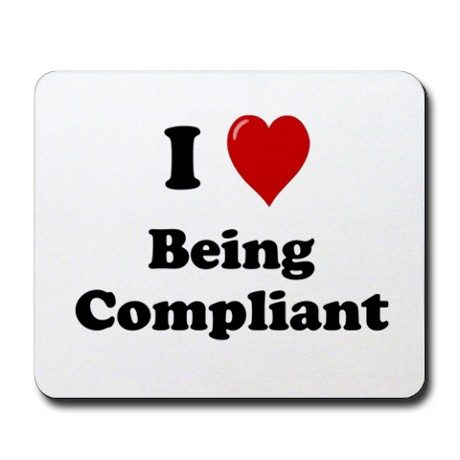 Today we are sharing some thoughts of what you should and should not do to remain compliant as a non-profit organization. Maintaining your Non-Profit status is key to keeping public accountability , and to receiving continued funding for your organization.
Today we are sharing some thoughts of what you should and should not do to remain compliant as a non-profit organization. Maintaining your Non-Profit status is key to keeping public accountability , and to receiving continued funding for your organization.
The information contained here serves as a general guide to what it takes to maintain compliance for your 501(c) non-profit, though it may not be all inclusive or applicable to all non-profits.
Nonprofits are held to a high standard of government regulation and public scrutiny, for good reason, as 501(c) nonprofits are exempt from federal corporate taxes and have access to public funding. These benefits typically are not available to for-profit businesses, therefore laws are in place to protect the public and ensure nonprofits do not abuse their financial privileges. States and the IRS have ongoing and strict requirements that nonprofits must meet.
Some Key Aspects of Compliance
The IRS provides tax exemptions to eligible nonprofits under Internal Revenue Code 501(c). The IRS scrutinizes organizations when they apply for 501(c)(3) status, but also ensure that those organizations meet the ongoing obligations to remain eligible. Nonprofits must file a 990 tax form each year with the IRS to disclose their financial data for the year.
Each state has its’ own set of requirements. Your organization must be knowledgeable of the requirements based on the state in which it has incorporated because the state will impose those requirements on the nonprofit and those responsibilities may span across multiple state agencies if your organization is incorporated in more than one state. Such responsibilities may include:
- Filing an annual report
- Maintaining charitable solicitation or fundraising registration
- Filing a corporate tax return
- Maintaining a registered agent
- Maintaining state-level tax exemption
Some other Good Governance Practices
- Maintain corporate minutes of all board meetings (and committee meetings for committees that are authorized to act on behalf of the board, such as an executive committee). (See IRS Form 990, Part VI, Section A, line 8)
- Annually review a written policy and complete a questionnaire about conflicts of interest. (See IRS Form 990, Part VI, Section B, Line 12) and document in minutes of board meetings when the policy is invoked.
- Approve the executive director/CEO’s compensation and benefits, and document how the board determined that the compensation is appropriate, and not excessive. (See IRS Form 990, Part VI, Section B, line 15)
- Require the board to review a copy of the IRS Form 990 before it is filed. (See IRS Form 990, Part VI, Section B, line 11) For smaller nonprofits that only file the Form 990-N, make sure the board knows about the annual filing requirement.
- Disclose to the public the nonprofit’s three most recently filed annual returns with the IRS, as well as its application for tax-exemption and related correspondence and attachments.
- Written whistle blower protection policy (Part VI, Section B, line 13)
- Written document retention/destruction policy (Part VI, Section B, line 14)
- Written gift acceptance policy to govern the receipt of “non-cash” gifts, such as gifts-in-kind, and unusual gifts (land, vehicles, artwork etc.)
- Joint ventures: If the organization has participated in a joint venture, the IRS Form 990 asks whether the nonprofit took steps to avoid prohibited private benefit. (Part VI, Section B, line 16)
It’s important for non-profits to keep adequate and complete records. This will prove critical when board members, funding sources or donors request information and when applying for funding, or in the event of an audit. These records are also necessary for submitting applications and renewal filings with various government agencies.
Not all accounting is created equal and nonprofit finance and compliance require special expertise.
The organization needs top-notch financial oversight by an expert in both nonprofit accounting and government reporting and compliance but if the organization cannot afford a full-time accountant or CFO the organization should seek to retain a temp or other company that has non-profit accounting expertise.
Establishing good fiscal policies and procedures is more of an investment of time and attention
than money. Very small nonprofits or even all-volunteer groups can commit to the
conversations and documentation needed to establish sound financial policies.
Specific policies and procedures vary widely depending on the organization’s budget size,
staffing, and business model. There is no “one size fits all” that will work for all
organizations.
Our fiscal and organizational guide offers a recommended structure for accounting policies and procedures.
Grant Management Non Profit Fund Accounting
You will find this book to be invaluable when setting up and maintaining your systems for non-profit finance, compliance, reporting and organizational status reports for your Board of Directors and other interested parties. In addition to performing deliverables, as specified in your program plan, timely and effectively, you should not have to worry about discontinued funding or losing accountability due to non-compliance.
Be aware of some things not allowed
- Have any shareholders
- Expend income on anything intended to advance any purpose other than your tax-exempt purpose
- Contribute to political campaign(s).
- Lobby in order to affect legislation in any “substantial” way. If a Non Profit intends on affecting legislation, it first must make an election under Form 5768.
- Make substantial profits from, or contribute substantial time on, “unrelated activities”
Follow the rules and regulations and your non-profit should continue to grow, make a difference in our communities and last but not least continue to receive funds and donations to carry out your mission.



